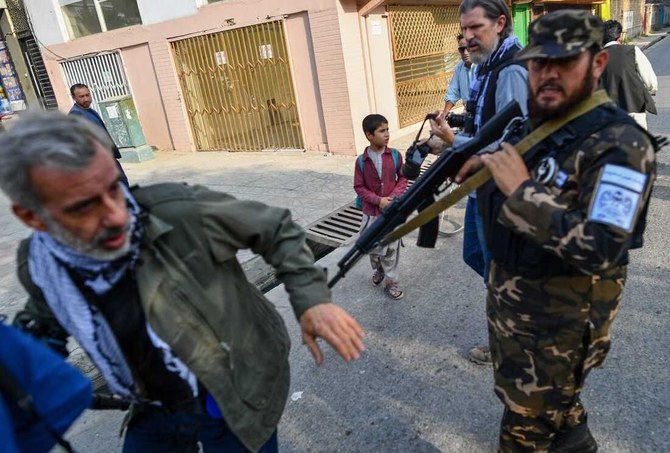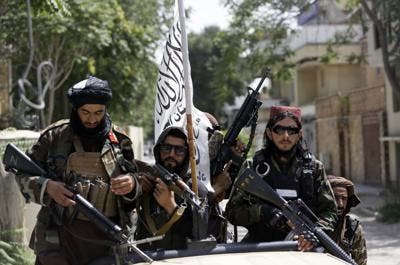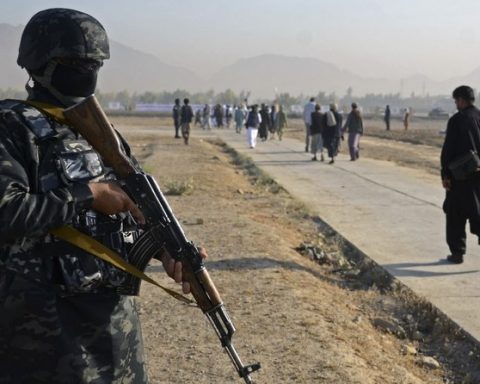A group of Afghan journalists has described the threats they face from the Taliban after working with UK media for years, accusing the British government of abandoning them during last year’s withdrawal.
Eight journalists are launching a legal challenge against the government after fighting since last year’s withdrawal for support they feel they are owed after helping UK interests in Afghanistan.
After waiting months for support for relocation to Britain, they allege that the government has only sent them the standard response emails from the Afghan Relocations and Assistance Policy (ARAP) program.
The Foreign Affairs Committee this week issued a report on the British withdrawal from Afghanistan, alleging that the chaos was worsened by the Foreign Office not having a sufficient plan to support Afghans who aided British efforts in the country through their roles in civic society. Workers such as judges, journalists and activists were all abandoned when the rescue operation stirred into action, it claimed.
The members of the eight-person journalistic group appear to belong to that section of Afghan society. They told the Observer that they had worked with British media by producing programs on work against the Taliban and efforts to rebuild Afghanistan’s infrastructure. They also contributed to work on women’s rights and the fight against illegal narcotics.
Now that the Taliban is in charge, they told the Observer that they have received warnings that they were being targeted.
The government offered special visas to journalists who had worked with British media, with former Foreign Secretary Dominic Raab stating at the time: “We must protect those brave Afghan journalists who have worked so courageously to shine a light on what is really going on in Afghanistan.” Any cases of relocation were expected to be expedited if there was an “imminent threat to life.”
But after nine months and regular death threats, some of the group have seen no progress.
One member, who wished to remain anonymous, reported regular kidnap and assassination attempts, telling the Observer that he now regularly moves location and lives away from his family so they do not get caught up in his targeting.
“I’m in a kind of trauma,” he told the Observer. “There is a group of us that the UK government must help. I haven’t had a single night without concern at home with my family.”
He said that he was once shot at while sitting in a garden and that men jumped him from a car to beat him. “They beat me around the head — my body was full of blood,” he said. “I don’t know how they didn’t drag me in the car — I think others helped me.”
Others have messaged him threats: “They said, ‘we already have a decree to kill you’. I think I’m on the target list of those people and maybe one day they will find me.”
He told the Observer: “Unfortunately, we already are under very serious threats. We don’t want to wait until 2024 to get out. I have no sleep. Day by day, my sleep is reducing. Nowadays, it’s two hours, three hours — nothing else.”
Another journalist in the group told the newspaper that he also believes he is on a Taliban hit list, adding that he feels like he has essentially become a refugee, living a life of fear in his own country.
“The Taliban and other extremists are openly talking against those who are affiliated to the UK media,” he said. “They say we are spies. The Taliban have sent me warnings. That’s why I tried many times to convince UK officials to help me relocate. The UK government promised that those who were affiliated with the UK media would be eligible. What happened that they forgot us and don’t hear our voices?”
Erin Alcock, the Leigh Day lawyer representing the group, said: “A promise was made in August that Afghan journalists who worked for British media organizations, facing imminent threat, would be relocated to the UK. Not only has that promise not yet been fulfilled, but nine months on, our clients have had no indication of when they will even receive a response.”
A British government spokesperson said: “We cannot comment on individual ARAP applications . . . However, since the scheme began, we have relocated over 9,200 applicants and their dependents to the UK. This scheme remains open and . . . we are progressing applications as quickly as possible.”












